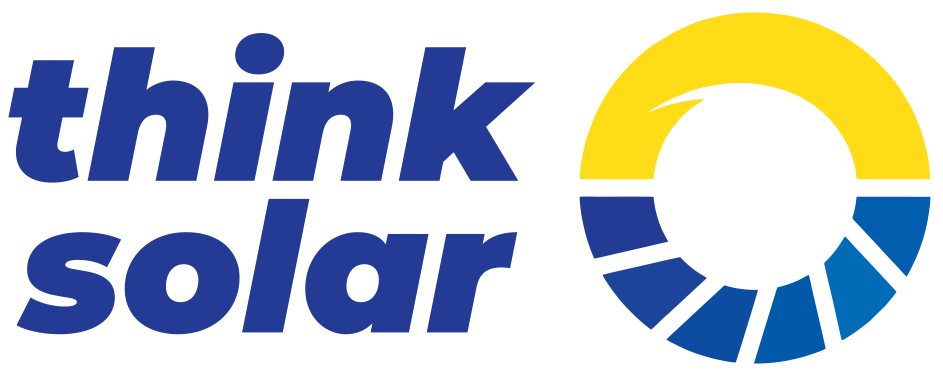Debunking 10 Solar Energy Myths: The demand for renewable forms of energy is on the rise in order to lessen the effects of global warming our environment faces due to increased pollution.
We are surrounded by a plethora of renewable energies, especially solar energy, which has the potential to be used year-round. Although this is true, there is still scepticism surrounding the benefits gained from solar energy. It is time to remove that scepticism of solar energy and improve the future outlook for it.
Myth 1: Solar panels do not work in cold snowy weather or when it is cloudy.
Fact: Solar panels work in sunny, cold, and even cloudy environments. The technologies of solar panels allow them to work effectively and efficiently and are even more effective in cooler temperatures than warmer ones. In addition, cloudy weather does not inhibit the efficiency of solar panels; they can be a viable source of electricity as they can still produce enough power.
 |
| Top 10 Solar Energy Myths and the Solar Panels, Batteries, Inverters Solutions in Zimbabwe |
Even cold, sunny winter days generate a comparable level of electricity to what you would get from hot summer days. Examples of countries where such systems are efficient are Germany (world leader of solar panels), the UK, China and Italy.
Myth 2: Solar energy can still power my home when the power goes out.
Fact: Of course if you are living on the grid when the power goes out, the grid system also goes out as it is dangerous to run electricity to wires that electricity workers are trying to fix. As a result, your inverter knows that the grid has been shut off and shuts off the electricity generation that is driven from solar panels.
Myth 3: Solar energy is too costly and is not economically viable.
Fact: Actually, if we look at figures from 2009 to 2015, investments in solar panels have generally been on the rise as they are becoming more affordable. Their average costs have fallen by about 30% percent. Globally, it is actually cheaper to produce electricity from solar energy than it is from coal. In addition, having solar panels allows you to give electricity back to the grid, allowing you to benefit from the feed-in tariff scheme.
If you are interested in investing in solar panels for your home, we recommend you act quickly in order to still benefit the Feed in Tariff in the UK. This government scheme is ending on 31 March 2019, but if you submit your application in time you could still benefit from payments over the next 20 years.
If you are interested in investing in solar panels for your home, we recommend you act quickly in order to still benefit the Feed in Tariff in the UK. This government scheme is ending on 31 March 2019, but if you submit your application in time you could still benefit from payments over the next 20 years.
Myth 4: Installing solar is quite complicated and requires a lot of maintenance.
Fact: Actually, solar panel installation is relatively straightforward as long as you are using a reliable manufacturer. Ideally, if your system is connected to your utility grid, which is common among electricity systems, then it makes solar panels easier to maintain. The solar panels would just need to be cleaned with water to remove any accumulated dust or debris or snow that has been trapped on them. |
| Top 10 Solar Energy Myths |
Solar panels are constructed in a way that allows them to withstand harsh weather, including hail, sleet, etc. If you have a battery based system, it will need more cleaning than one without, but systems without batteries are more common and are cheaper than those that have battery systems.
Myth 5: Solar panels will cause damage to your roof.
Fact: Solar panels actually benefit the portion of the roof they cover by protecting and preserving it. In the unlikely event that the roof the panels are sitting on is damaged and needs to be repaired, the panel can be easily removed since they aren’t directly attached to the roof; they are just mounted on top of it. Usually, if there are any gaps between the rooftop and the panels, a sealant is used to fill in the gaps. In addition, the mounts are protected using a metal “flashing” or coverings for an extra barrier for protection. Always remember to make sure your roof is damage-free before mounting a new rooftop.Myth 6: Excess energy can be stored in battery systems.
Fact: If you are living on the grid, your system is connected to the electricity grid, thus you would benefit from a net metering system. Additionally, if you are connected to the grid, you are still able to keep your current local utility company, so if you produce more electricity on some days, you end up having more electricity credited to your own account. Therefore, if you need more electricity at night when the system isn’t running, you end up using the extra electricity produced to power your home directly from the grid. This is done automatically so you won’t notice any changes when the switch occurs whilst still have a low electricity bill.
Myth 7: Reselling your home will be harder with solar panels.
Fact: Actually, solar panels would enhance the property value of your home. Many studies have found that homes with solar panels actually sell faster than homes without solar panels. Although the cost of solar panels ranges from £5,000 - 8,000, you end up saving on a long term basis as they enhance your home’s value by as much as £14,000 on average, but this is completely dependent on how much it will be worth. Additionally, as solar panels allow for increased savings from the feed-in tariff scheme, such homes are appealing to buyers as they would reap the continued benefits from the feed-in tariff scheme.
Myth 8: Solar panel prices are based on the size of your home.
Fact: Solar panels are designed to fit the specific needs of each homeowner. When determining the cost of installing solar panels, special attention is paid to the orientation and slope of your home’s roof. In addition, the surrounding area of the roof is considered when building to make sure it is positioned in an area that has easy access to sunlight and is not obstructed by surrounding trees or buildings.
Myth 9: If we can use clean coal, why invest in solar energy?
Fact: Solar power is a cleaner form of energy than “clean coal” because coal isn’t really clean. Coal is one of the dirtiest fossil fuels. Coal mining is responsible for a number of health problems due to the blasting of mountaintops and leaving a pond of black slurry in its path. The more coal we burn, the more damage we do to the environment as it increases the levels of mercury and smog and additionally increases carbon pollution, leading to more damaging effects in the environment.
Myth 10: Solar panels are bad for the environment after their lifetime is used up.
Fact: Actually, solar panels are built to reach a maximum lifetime use of 25 years, after which they can be recycled. This all depends on the manufacturer you use to install your solar panels, but knowing whether they will be recycled is a bit tricky as most solar panels are still working optimally. Additionally, some manufacturers will even recycle them for you free of charge.
Choosing The Best Solar Company in Zimbabwe:
We Are Think Solar Zimbabwe and we Provide a wide range Portfolio of Solar Panels, Inverters and Batteres. We provide Wholesale Solar Prices for Retail Customers for Solar Accessories.Browse Solar Inverters and Batteries from major brands like Must, Fronius, SolarEdge, SMA, Victron, Enphase, Solis, Sungrow, Outback Power, Kostal and Solax. Some of the power Inverters ship straight from our Distribution centres in China, Germany, Portland, USA and Canada.
Browse Solar Panels (Modules) from major brands like Jinko Solar, JA Solar, REC Solar, Astronergy, Sunpower, Canadian Solar, LG, Panasonic, GCL, Solaria, TCL, Q-Cells and more. Solar Panels ship straight from from our Distribution Centres located in China, United Kingdom and Neu-Anspach, Germany.
These Solar Energy products can be ordered 24/7 from our online shop. Think Solar Zimbabwe and its partners stock Solar Power products in warehouses around Zimbabwe. Think Solar Zimbabwe offers delivery services to several major cities in Zimbabwe, including Harare, Bulawayo, Masvingo, Gweru, Chinhoyi, Kariba, Chivhu, Mvuma, Kadoma, Kwekwe, Zvishavane, Bindura, Marondera, Mutare, Murehwa, Mutoko, Chiredzi, Victoria Falls, Hwange, Rusape, and Beitbridge. If your city is not listed, Think Solar encourages you to call its Head offices in Harare to make delivery arrangements.
Overall, Think Solar Zimbabwe is committed to providing its customers with affordable, high-quality products and excellent customer service. Whether you are looking for a small item or a large one, you can trust Think Solar Zimbabwe to deliver your package quickly and efficiently anywhere around Zimbabwe.
WhatsApp: +263 78 922 2847 and +263 78 864 2437
Landline: +263 24 2797750











